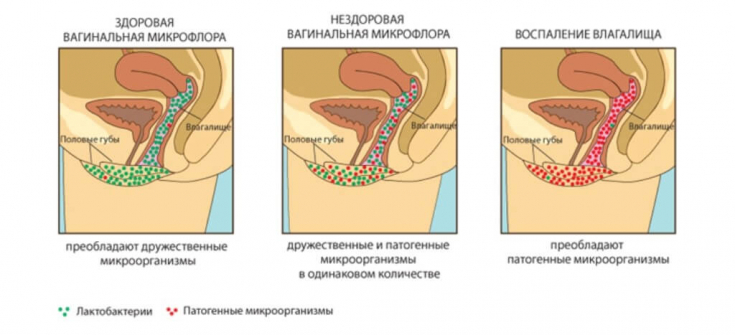– they are live microorganisms which, when administered in adequate amounts, should confer a health benefit on the host. Probiotics are commonly presented in the media as an attractive health-promoting method that can prevent or treat a wide variety of clinical conditions. In obstetrics and gynecology, Lactobacilli species are mainly used to
restore the physiological vaginal microflorato treat bacterial vaginosis and vulvovaginal candidiasis and to prevent preterm birth. However,
whether such treatment with probiotics is justified, read on estet-portal.com in this article.
- The role of the vaginal microflora in maintaining women's health
- Probiotic efficacy studies
- Probiotics in gynecology: patient health or pharmaceutical company enrichmentni The role of the vaginal microflora in maintaining women's health
are one of the most common reasons for gynecological consultations. Approximately 7 out of 10 women are expected to experience at least one episode of vulvovaginal candidiasis in their lifetime.

– another common vaginal disease associated with an increased risk of pelvic inflammatory disease, sexually transmitted infections, HIV transmission, and preterm birth.
Causes and Treatments for Bacterial Vaginosis

Bacterial vaginosis is characterized by
reduction ordepletion of lactobacilli and overgrowth of Gardnerella vaginalis, Mycoplasma hominis, Prevotella spp., and other pathogenic anaerobic bacteria. Lactobacillus produce lactic and acetic acids and hydrogen peroxide, maintain vaginal pH at 4.5 or less, inhibit the growth of pathogenic bacteria and Candida albicans.
Vaginal microbiome: bacteria guarding women's health Thus, it would seem logical to assume that probiotics containing Lactobacillus help restore the microflora and can be used to treat bacterial vaginosis and vulvovaginal candida
osis. Is this really true? Probiotic efficacy studies
In the last decade,
many clinical trialshave been conducted to evaluate the effects of probiotics in the prevention and treatment of a wide range of disorders, and scientific interest in this area is growing.
Read the most interesting articles inTelegram!
1.According to studies on the use of probiotics in the complex treatment of vulvovaginal candidiasis in non-pregnant women, probiotics slightly improved short-term clinical and mycological cure and reduced recurrence within 1 month. However, there was no significant effect of probiotic use in the long term.
2.Similarly, adding probiotics to metronidazole for Bacterial vaginosis has not shown any additional benefit.
3.In obstetrics, the use of probiotics during pregnancy did not decrease or increase the riskrate of preterm birth. Probiotics in gynecology: patient health or pharmaceutical companies enrichment
Despite growing marketing,
convincing evidencedemonstrating a beneficial effect of probiotics is very little. Like all bacteria, probiotics multiply very quickly: trillions already live in our intestines, and even more are waiting for their hour on the shelves of pharmacies.
Qualitative studiesneed to be done before recommending the systematic use of probiotics for the treatment of bacterial vaginosis, vulvovaginal candidiasis, and the prevention of preterm birth. And perhaps a particular strain of lactobacilli can still help cure both bacterial vaginosis and vulvovaginal candidiasis.
More useful and interesting information on our channel on
YouTube:







Add a comment